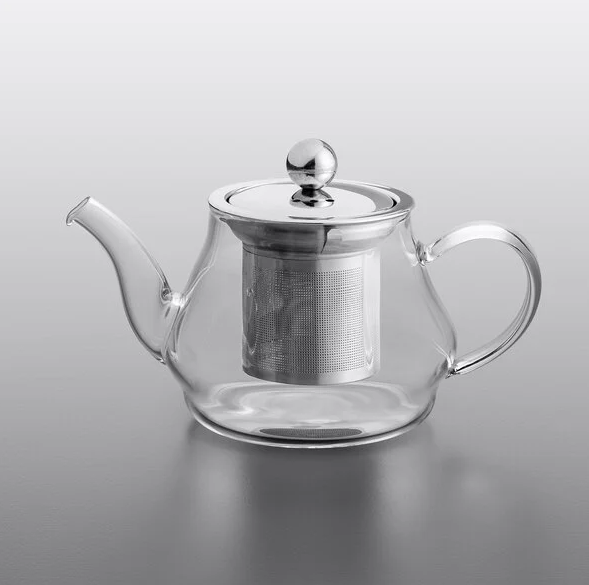12 Best Teas for Health
Teas has been used as a natural home remedies for treating a whole range of diseases and conditions for centuries. In fact, herbal tea is a part of every traditional medicine in the world and still preferred over regular medicine by many people. Can they really help? What does science say about the benefits of teas and herbs? We made a list of some concerns and best teas that may help.
What is the best tea for improving health?
All real teas and hundreds of tisanes are considered beneficial for health. Every type has more than just one benefits, but may have one or more side effects too. It’s almost impossible to say which tea is the best for improving health, because every person will react differently. For general health purposes, the best option is usually a tea with lots of antioxidants, such as green, white or rooibos tea. For enhancing sleep, herbal teas like valerian root or hops are often recommended by herbalists. Although health benefits of each type of tea are important, the perfect cup of tea to improve your health will be the one you enjoy the most.Best hot tea for your health – the top 12
From weight loss and boosting digestion, to enhancing sleep quality and dealing with depression, there is a right tea that may help with every condition. What science says are the best teas for health?1. Best tea to aid your sleep
Out of all sleepy time teas, Valerian root may be the strongest one. Research says that it may significantly improve sleep quality, if used continuously for 4 weeks[1]. What might put you off from even brewing Valerian root tea is its scent. Strong and pungent, it may discourage many people from enjoying its benefits. However, regardless the scent, Valerian root brews into a cup of delicate and pleasant drink, that may be enjoyed about 30 minutes before sleep.2. Fighting depression and anxiety
St. John’s wort is one of the most popular natural remedies for treating depression. Studies suggest it may be helpful in treating even severe depression disorders,[2] because it “prolongs the action of serotonin[3]”, a “happy hormone”. However, use extra caution when using this herb. It may cause serious side effects and should be completely avoided by pregnant women and those already taking antidepressants.3. Boosting digestion
Pu’erh belongs to the group of dark teas. Although it resembles regular black tea, pu’erh is in fact a fermented type. Fermentation is the reason why pu’erh may help with boosting digestion and helping with weight loss goals. It may be beneficial for people with increased blood sugar[4], blood pressure, cholesterol and extra weight[5].4. Aiding weightloss
While oolong tea has many other great benefits, it first became popular due to weight loss claims. Surprisingly, this might be true. Research says that oolong tea might be one of the best teas for losing weight. In one Chinese study including over-weight and obese patients, some of them managed to lose up to 3 kg, without any changes to their lifestyle[6].5. Tea with the most antioxidants
Tea in general has a much higher anti oxidative capacity than many other healthy fruits, vegetables and herbs[7]. Although all real teas and many herbal infusions (ie. Rooibos) have very high amounts of antioxidants, unoxidized green tea is the winner. Antioxidants in green tea may protect from oxidative stress. The role of antioxidants is to protect cells from damage that may cause numerous health problems – from cancer[8] to neurodegenerative diseases[9]. The most important antioxidant in green teas is a catechin called EGCg, found in much fewer quantities in other tea types.6. Treating nausea
As an antiemetic, ginger may help with treating all sorts of nausea – from pregnancy to motion and chemotherapy-induced nausea. Studies suggest in some cases, ginger may be as helpful as regular medicine[10].7. Dealing with sore throat
Iceland moss may be a powerful companion in dealing with sore throat. This lichen contains mucilage, a substance that may provide soothing effect. Research showed that Iceland moss is an advisable solution, showing no interactions or side effects[11]. Find out what are the other teas that may help with a common cold.8. Anti-aging tea
White tea enjoys a world-wide popularity as a beauty tea. In fact, researchers already showed that the name might be justifiable. White tea is often an ingredient in many skincare products, quite often in the upscale range. Studies say that white tea has a “potential anti-ageing activity via inhibition of collagenase and elastase”[12] and may help in protecting skin cells from the sun damage[13].9. Anti-stress tea
Tulsi or Holy Basil is an Indian herb popular in traditional medicine as an adaptogen. Adaptogens are believed to have an ability to naturally deal with all types of stress. Contrary to common belief, there are only a handful of real adaptogens, and tulsi is one of them. Reports show that tulsi can normalize both psychological[14] and physical stress, [15] and create a sense of calmness and balance, without causing addiction.10. Protecting liver
Curcumin, a polyphenol in turmeric, may be helpful in dealing with liver injuries caused by different reasons – from alcohol to iron overdose[16]. Curcumin acts as a “free radical scavenger”[17] and may help in both prevention and treatment of liver diseases. This makes turmeric a popular choice in different detox regimes. Be careful though and consult your doctor before trying to self-treat any liver conditions.11. Protecting from neuro-degenerative diseases
Ashwaghanda is another adaptogenic herb very popular in Ayurveda, a traditional Indian medicine. It may help in dealing with stress and may play a role in protecting brain from neuro-degenerative diseases. A study on mice with Alzheimer’s Disease showed that ahswaghanda not only significantly improved the brain function, but helped return it to normal.12. Fighting bacteria
Among dozens of different herbs and real teas, a common rosehip may be one of the best choices to fight bacterial infections. Research showed that rosehip may have a better effect and fight more different bacteria than green or black tea.[18] Rosehip should be avoided during treatments with some antibiotic[19].How to make the best tea
Be careful if you are using tea or herbs for treating medical problems. Always consult your doctor before any type of self-treatment. Although most common herbs are likely safe, they may interact with other medicine and cause serious side effects. To fully enjoy the benefits of tea, always use fresh, properly stored loose teas and herbs. They are likely to be of higher quality than tea in a tea bag. Keep them away from mold, sunlight, heat and air. Use freshly boiled spring water and measure tea leaves following recommendations. Most herbal teas are made with boiling water, but be careful with real tea types. Use hot water, freshly boiled and cooled to a recommended temperature. Pay attention to brewing times. If there are no provided instructions, make sure to ask your medical provider. Never exceed the recommended dosage. Do not over-brew the tea. If you want to add the milk, first check if it won’t reduce the effects of the certain tea. Drink tea when it’s still hot, but not too hot.Disclaimer: The purpose of this article is not to diagnose or treat any diseases, or to replace an opinion of a professional doctor. Never self-treat any diseases, or drink large quantities of tea, real or herbal, if you are suffering from serious diseases, are pregnant or breastfeeding. As every person is different, it’s impossible to make a general statement about the benefits or side-effects.
References:
[1] http://accurateclinic.com/wp-content/uploads/2016/03/Valerian-University-of-Maryland-Medical-Center.pdf [2] https://www.ncbi.nlm.nih.gov/pubmed/26366471 [3] https://www.anxietyuk.org.uk/get-help/anxiety-information/guide-to-herbal-medicine/ [4] https://www.ncbi.nlm.nih.gov/pmc/articles/PMC6712024/ [5] https://www.ncbi.nlm.nih.gov/pubmed/24399768 [6] https://link.springer.com/article/10.1007/s11655-009-0034-8 [7] https://www.ncbi.nlm.nih.gov/pmc/articles/PMC6617242/ [8] https://www.ncbi.nlm.nih.gov/pmc/articles/PMC3509513/ [9] https://www.ncbi.nlm.nih.gov/pmc/articles/PMC6099654/ [10] https://www.ncbi.nlm.nih.gov/pmc/articles/PMC4818021/ [11] https://www.ncbi.nlm.nih.gov/pubmed/9213408 [12] https://www.ncbi.nlm.nih.gov/pmc/articles/PMC3214789/ [13] https://www.sciencedaily.com/releases/2003/01/030130081227.htm [14] https://neoscriber.org/cdn/dl/814351d4-7cd2-11e7-a12a-73a273e408f9 [15] https://www.ncbi.nlm.nih.gov/pubmed/25624701 [16] https://www.ncbi.nlm.nih.gov/pubmed/19811613 [17] https://www.ncbi.nlm.nih.gov/pmc/articles/PMC6073929/ [18] https://www.ncbi.nlm.nih.gov/pmc/articles/PMC5533155/ [19] https://www.ncbi.nlm.nih.gov/pmc/articles/PMC5533155/
More from:
SLL



Leave a comment